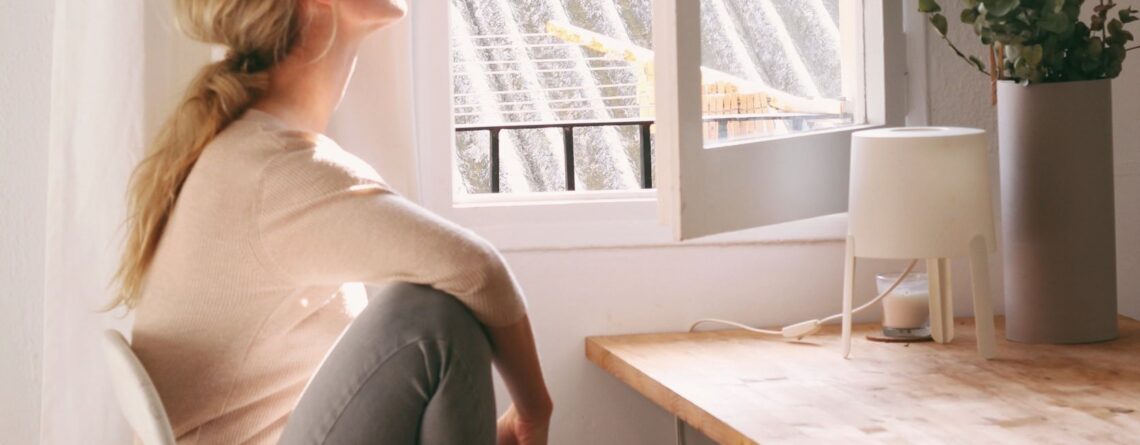How to Cope with Anxiety About the Delta Variant
The coronavirus pandemic that has been spreading throughout the country, causing shutdowns and new restrictions in movement over the past year and a half, seemed to be on its way out with the launch of several effective vaccines. However, the delta variant of the virus is creating a new round of uncertainty and worry about COVID-19. It’s more important than ever to understand how to cope with anxiety about the delta variant and to keep safe and healthy.
The Delta Variant
Discovered in October 2020, as of August 2021, the delta variant has overtaken the alpha variant, the original form of the virus, in the US. The new variant is thought to be between 55% and 90% more transmissible than all other variants, and experts believe that the delta variant is 30%-100% more infectious than alpha.
The top symptoms associated with the new variant have been reported as sore throat, headache, runny nose, and fever. Unlike the alpha form of the virus, a cough is less common, and the loss of smell is no longer included in the list of the top 10 symptoms.
Worry and Anxiety
Along with the spread of the delta variant of the virus, concerns are returning about becoming infected and the stress is increasing over having to once again isolate, wear masks, and maintain social distances. These concerns can develop into anxiety and fear, becoming detrimental to an individual’s mental health.
A recent Associated Press-NORC Center for Public Affairs Research poll found that 41% of adults in the US are “extremely” or “very” worried about becoming infected and about their family contracting the virus. This number is up significantly from 21% in June and is comparable to the 43% in January, when the previous major surge occurred.
About half of the people participating in the poll say they often or always wear a mask around other people and avoid large groups of people as well as non-essential travel. Almost 60% are in favor of full vaccination for anyone traveling on airplanes or attending public events. Approximately 60% support vaccine mandates for healthcare workers, government employees, restaurant workers, members of the military, and public-facing retail store employees.
Just over half favor mandatory vaccinations for people going to bars and restaurants and 55% favor requiring masks anywhere outside the home when people are interacting with other people. In addition, 62% support mask mandates for employees working with the public. These strategies emphasize the need most people feel to stay safe and physically healthy, while they also become anxious about the effects the virus may have on them and their family.
How to Cope with Anxiety About the Delta Variant
Stress and worry over the delta variant are increasing, just as the number of cases is increasing. While the virus itself can seriously impact a person’s physical health, so can the state of that person’s mental health. Focusing on coping with anxiety can be an important aspect of an individual’s overall health and well-being during the pandemic.
Accepting that there is only so much an individual can control about the situation can actually help relieve that high level of anxiety about their overall environment. Taking steps such as getting vaccinated and wearing a mask will protect a person’s physical health and enable the individual a bit of control over their own well-being. However, there is an inherent inability to control the bigger picture that each person needs to accept for the sake of their mental health.
Putting emotions into perspective can also help an individual cope with anxiety about the delta variant. Although the stress and fear can be overwhelming, there are still good things happening every day. It can help to focus on even a small, positive event or sight each day. Literally stop and smell the flowers or watch a sunrise. Think about what is going right, instead of worrying over what may go wrong.
Going offline for a while can do wonders for stress and anxiety over the pandemic. Setting time limits for social media use can be very helpful for a person’s mental health, especially during times of anxiety. Constantly scrolling through posts or reading news items can be emotionally draining.
Finding alternatives for the low points of the day, in the forms of a mini-break, will help an individual cope with anxiety. If someone finds that they always seem to be more stressed and fatigued in the afternoon, for example, they should plan to take a walk in the fresh air or grab a quick and refreshing nap. A brief exercise session can benefit a person’s physical health and can serve as a mood boosting activity for improved mental health.
Contact R&A Therapeutic Partners for Help
At R&A Therapeutic Partners, we understand that the stress of the pandemic environment can cause you significant challenges. We support you and your mental health needs, helping you find the path that works best for you. To keep you safe and healthy, we offer in-office and online therapy options during COVID-19. We encourage you to contact the Miami therapeutic consultants Raymond Estefania and Ana Moreno to find out the services R&A Therapeutic Partners offers. Call us at 786-452-7352 to schedule your appointment.
At R&A Therapeutic Partners Raymond Estefania and Ana Moreno specialize in substance use and mental health disorder evaluations, treatment, intervention and therapeutic/educational consulting for clients throughout the greater South Florida area, as well as nationally and internationally. For more resources and information please visit Therapeutic-Partners.com or on Facebook.

